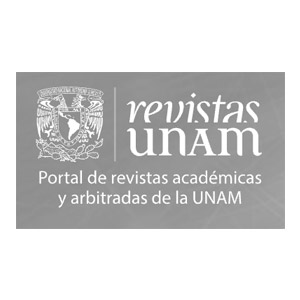Todos odian a un turista: viajes por el mundo, trabajo epistémico y ciudadanía local
Antes de la pandemia de 2020 el turismo mundial representaba más del 10% del PIB mundial, por un total de 9.6 billones de dólares estadounidenses; uno de cada cuatro puestos de trabajo creados ese año, en todo el mundo, pertenecía al sector de los viajes y el turismo. Y sin embargo, la figura del turista internacional se contempla a menudo con una actitud que oscila entre la perplejidad y el desprecio absoluto, hasta el punto de que existe una serie de libros para orientar a los turistas sobre cómo evitar parecer o actuar como turistas. ¿Por qué, pues, la figura del turista —especialmente la del turista internacional— está tan desprestigiada? Dado el ingente número de estos turistas (más de 1,400 millones, sólo en 2018), parece extraño pensar que hay algo vergonzoso o problemático en el turismo como práctica. ¿A qué se debe nuestro aparente desdén por el turista, incluso cuando muchos de nosotros hacemos turismo?
Más allá de las respuestas obvias a esta pregunta, en este artículo quiero sugerir una historia ligeramente diferente sobre nuestra inquietud ética por la figura del turista. Así, sostendré que la práctica del turismo internacional suscita dos tipos distintos de preocupaciones éticas —ambas reflejan el hecho de que el turismo internacional requiere una industria local en la que la diferencia cultural se preserve y se haga consumible por el turista extranjero—. Un hecho que puede generar preocupaciones éticas. En síntesis, el turismo internacional puede ser un lugar del que pueden surgir injusticias tanto distributivas como políticas. Estas preocupaciones pueden exacerbar relaciones ya objetables que reflejan legados coloniales de opresión, aunque pueden existir incluso en ausencia de cualquier historia de colonialismo. El mero hecho de que exista un mercado en la experiencia de las diferencias culturales puede ser suficiente para suscitar estas preocupaciones, y el turismo internacional, creo, a menudo implica, exactamente, esta forma de mercado.
Detalles del artículo
Uso de licencias Creative Commons (CC)
Todos los textos publicados por Problema. Anuario de Filosofía y Teoría del Derecho sin excepción, se distribuyen amparados con la licencia CC BY-NC 4.0 Internacional, que permite a terceros utilizar lo publicado, siempre que mencionen la autoría del trabajo y la primera publicación en esta revista. No se permite utilizar el material con fines comerciales.
Derechos de autoras o autores
De acuerdo con la legislación vigente de derechos de autor Problema. Anuario de Filosofía y Teoría del Derecho reconoce y respeta el derecho moral de las autoras o autores, así como la titularidad del derecho patrimonial, el cual será transferido —de forma no exclusiva— a Problema para permitir su difusión legal en acceso abierto.
Autoras o autores pueden realizar otros acuerdos contractuales independientes y adicionales para la distribución no exclusiva de la versión del artículo publicado en Problema. Anuario de Filosofía y Teoría del Derecho (por ejemplo, incluirlo en un repositorio institucional o darlo a conocer en otros medios en papel o electrónicos), siempre que se indique clara y explícitamente que el trabajo se publicó por primera vez en Problema.
Para todo lo anterior, deben remitir la carta de transmisión de derechos patrimoniales de la primera publicación, debidamente requisitada y firmada por las autoras o autores. Este formato debe ser remitido en PDF a través de la plataforma OJS.
Derechos de lectoras o lectores
Con base en los principios de acceso abierto las lectoras o lectores de la revista tienen derecho a la libre lectura, impresión y distribución de los contenidos de Problema por cualquier medio, de manera inmediata a la publicación en línea de los contenidos. El único requisito para esto es que siempre se indique clara y explícitamente que el trabajo se publicó por primera vez en Problema. Anuario de Filosofía y Teoría del Derecho y se cite de manera correcta la fuente incluyendo el DOI correspondiente.
Consúltese https://creativecommons.org/licenses/by-nc/4.0/

Esta obra está bajo una licencia internacional Creative Commons Atribución-NoComercial 4.0.
Citas
Lugones, M. (1987). Playfulness, “World”-Travelling, and Loving Perception. Hypatia, 2(2), 3-19.
Murphy, J. (2021, December 30). Hawaii is rethinking tourism. Here’s what that means for travelers. Seattle Times.
Radin, Margaret J. (1998). Contested Commodities: The Trouble with Trade in Sex, Children, Body Parts and Other Things. Harvard University Press.
Moyo, D. (2009). Dead Aid. Farrar, Straus and Giroux.
Beamer, Kamanamaikalani, (2019). Only Twenty Ahupua’a Away. In Hōkūlani K. Aikau & Vicuña Gonzalez (Eds.). Detours: A Decolonial Guide to Hawai’I. Duke University Press.

























